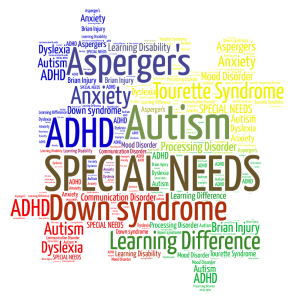Eunice Kennedy Shriver is known as a leader in the worldwide struggle to improve and enhance the lives of individuals with intellectual disabilities. Eunice Mary Kennedy Shriver, DSG was the founder in 1962 of Camp Shriver which started on her Maryland farm known as Timberlawn and, in 1968 evolved into the Special Olympics.
Eunice Kennedy Shriver believed in justice. But, in the late 1950s and early 1960s, she saw little justice in the way people with intellectual disabilities were treated. She saw they were excluded and routinely placed in custodial institutions. They were often ignored and neglected, yet she knew they had many talents and gifts to offer.
Eunice Kennedy Shriver had a sister, Rosemary, who had an intellectual disability. She and Rosemary grew up playing sports together and with their family. The sisters swam, they sailed, they skiied, they played football together. But in those days, there were limited programs and options for someone like Rosemary. Eunice Kennedy Shriver went on to become an athlete in college. She began to see that sports could be a common ground to unite people from all walks of life.
In the United States, special needs is a term used in clinical diagnostic and functional development to describe individuals who require assistance for disabilities that may be medical, mental, or psychological.

There are four types of special needs:
- Physical – a) Multiple Dystrophy; b) Multiple Sclerosis; c) Chronic Asthma; d) Epilepsy; e) Arthritis and more
- Developmental – a) Autism; b) Downs Syndrome; c) Dyslexia; d) Processing Disorders
- Behavioral and Emotional – a) ADD; b) Bipolar; c) Oppositional Defiance Disorder; d) PTSD
- Sensory Impaired – a) Blind; b) Visually Impaired; c) Deaf; d) Limited Hearing
The challenge for special needs families is in finding accurate resources to guide them in making plans for their family members.
One of the main challenges parents of adult children with special needs face is that of their own age and health. It’s not uncommon for parents to care for their adult children well into their 70’s, even into their 80’s. The care giving picture may change dramatically with a parent’s illness.
As parents age, they may be the ones in need of senior care, while their adult child with special needs continues to require the support of caregivers. Of special note, special needs seniors are a growing segment of our population.
When should you start planning the care for your loved one with special needs? The best time to plan is as soon as the disability is diagnosed. When it comes to helping someone with a disability, the sooner you start planning, the better. Whether your loved one is 18 or 70, today is the day to start making the necessary plans to ease them through life, including those challenging senior years.
Careful planning for all ages in conjunction with financial, health and legal experts in the special needs planning field can provide peace of mind for all concerned.
If you are curious about exploring contingency planning at home and work and why this may be of benefit, I invite you to contact The Living Planner. We proactively help you assess your situation in business and home and explore ways for you to protect what is important to you. Consider your risk, your plan, your readiness today.
Contact us to learn more about how we work with individuals, business owners and employees via Email or online @ The Living Planner #LifePlanningSimplified
